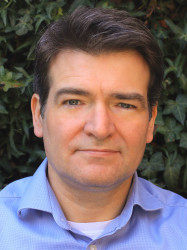BibTex format
@article{McCarthy:2021:10.1016/j.ccr.2021.213925,
author = {McCarthy, S and Braddock, D and Wilton-Ely, J},
doi = {10.1016/j.ccr.2021.213925},
journal = {Coordination Chemistry Reviews},
pages = {1--26},
title = {Strategies for sustainable palladium catalysis},
url = {http://dx.doi.org/10.1016/j.ccr.2021.213925},
volume = {442},
year = {2021}
}

